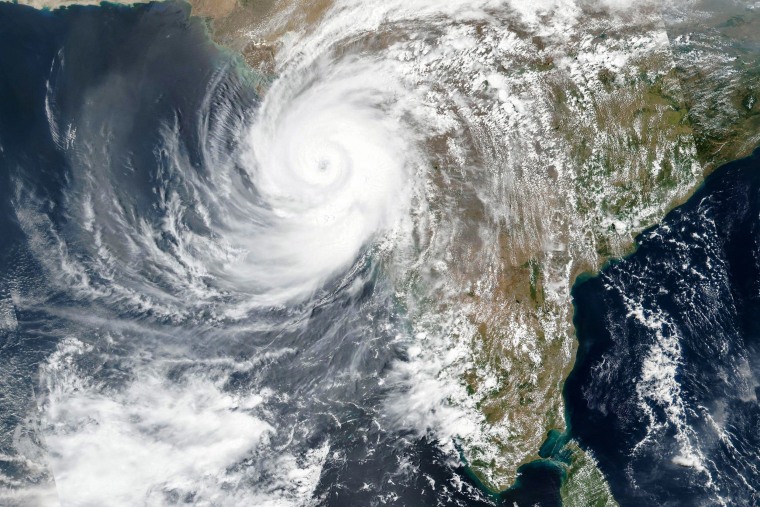The Indian Navy was rushing to rescue crew members from a sunken barge and a second cargo vessel that was adrift Tuesday off the coast of Mumbai after a deadly cyclone struck the western coast.
The navy said it had rescued 177 people of the total 400 on the two barges in the Arabian Sea. Three frontline warships, maritime patrol aircraft and helicopters were part of the rescue operations and were scouring the sea, the Navy said.
Both barges were working for Oil and Natural Gas Corporation, the largest crude oil and natural gas company in India. The company confirmed that the vessels were in distress and rescue operations were ongoing on its website.
Cyclone Tauktae, the most powerful storm to hit the region in more than two decades, packed sustained winds of up to 130 miles per hour when it came ashore in Gujarat state late Monday. Four people were killed in the state, raising the storm's total to 16.
Residents emerged from relief shelters Tuesday to find debris strewn across roads, trees uprooted and electricity lines damaged.
In Maharashtra, six people were killed Monday but the state's capital, Mumbai, was largely spared from any major damage even as heavy rains pounded the city’s coastline and high winds whipped its skyscrapers.
Over the weekend, the cyclone had killed six people in Kerala, Karnataka and Goa states as it moved along the western coast.
Download the NBC News app for breaking news and politics
The cyclone has weakened, but the India Meteorological Department forecast heavy rainfall for many parts of Gujarat and Maharashtra in the coming days.
Ahead of the cyclone, about 150,000 people were evacuated from low-lying areas in Maharashtra and Gujarat states.
S.N. Pradhan, director of India’s National Disaster Response Force, said social distancing norms were being followed in evacuation shelters and rescue teams were clearing debris from affected areas.

Both states, already among the hardest hit by the coronavirus pandemic, had scrambled disaster response teams, fearing the storm could endanger India’s fight against the coronavirus, with supply lines cut, roads destroyed and lockdown measures slowing relief work.
Tropical cyclones are less common in the Arabian Sea than on India’s east coast and usually form later in the year. But experts say changing climate patterns have caused them to become more intense, rather than more frequent.
In May 2020, nearly 100 people died after Cyclone Amphan, the most powerful storm to hit eastern India in more than a decade, ravaged the region.